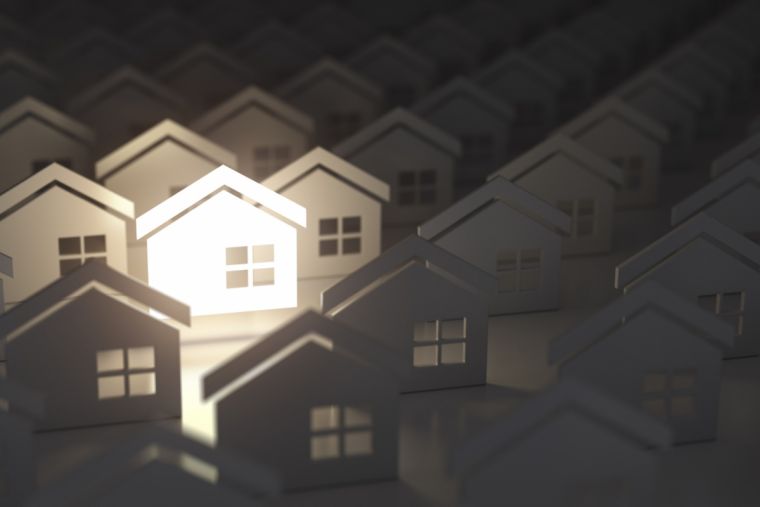The scandal of squalid housing in modern Britain

The news at the weekend was full of the heart-rending story of two year old Awaab Ishak, who died from breathing problems caused by rampant mould in his family's housing association flat. The inquest was told that he had fungus growing in his lungs due to the dreadful living conditions.
What makes this even worse is that Awaab's father had spent three years requesting repairs to be made, but he was repeatedly turned away, as was the family's health visitor, who twice had her concerns dismissed.
The housing association has expressed remorse, sacked its chief executive and vowed that 'lessons will be learned'. But this situation is not even uncommon. My MP's postbag brings cases to my attention about poor quality housing in the private and rented sectors - and a recent ITV News investigation into mould and damp problems in homes, found more than 800,000 houses affected by this issue.
They featured people forced to live in the most appalling and upsetting living conditions – walls entirely covered in mould, leaks pouring through ceilings, families obliged to live in one room; their physical and mental health suffering, their dignity sapped away, and very often with nobody from the authorities seemingly willing to do anything about it.
How on earth are we in a situation in 2022 where, according to the English Housing Survey, 9% of England's housing stock fails to meet the statutory minimum standard for housing because of a category 1 hazard.
Category 1 hazards include damp and mould amongst 29 dangers to health and safety, including excess heat or cold, asbestos, overcrowding, drainage problems and electrical hazards.
Of course there is a legal requirement for landlords and housing associations to tackle these issues, but too often we see that tenants' conditions and concerns are ignored or dismissed.
The story of little Awaab gets right to the heart of what it means to be human. We can tell so much about a society by how we treat one another. What value do we place upon the life of others, and what should – in practice as well as law – be an acceptable standard of living? One that means people have access to a safe and sanitary home and are not made to live in cramped and squalid conditions? One where concerns are not treated with annoyance or indifference by those with the ability to tackle them?
And it pains me to say that those who are forced into such dreadful living conditions tend to be the poorest in our society, often immigrants or of non-white heritage, and quite simply treated as less than human. We saw this attitude in the circumstances that led to the Grenfell Tower fire in 2017, and its aftermath. And we see it too often in the way that asylum seekers and refugees are treated.
These are all deeply Christian issues. Every human bears the image of God, and that confers great, lofty dignity on every single one of us. And the Bible carries stern commands about the way we should treat each other. The welfare of our neighbours is linked to our own, at a fundamental spiritual level.
In Matthew 25, Jesus speaks of the day when he will "separate the people from one another as a shepherd separates the sheep from the goats...". He warns that those who do not care for others in need will be turned away: "Truly I tell you, whatever you did not do for one of the least of these, you did not do for me." This reveals the heart that our Father God has for all people.
So how can we respond? Let us pray for compassion and dignity to be given to those who have the least. Let's pray for a change of attitude, practically in our own lives, but more widely in our society: a recognition that the authorities are there to serve the population, that landlords have a duty to look after their tenants, and that they must not seek to use legal, practical or financial excuses to avoid action.
Let's pray for all those involved in the provision and administration of housing services. Of course many show great care and concern, and do so under the pressure of extremely limited resources, but others have become disillusioned and careworn. Let us pray that they will understand their responsibility to respect and protect those under their care, and that they will desire to use their powers to make a positive difference in the lives of others.
The language of 'rights' is common in our secular society, but this language comes from a Christian worldview – because we have a duty to love others, in a practical and sacrificial way, then it follows that God has given rights to our neighbours to receive that love and care.
Awaab had rights, and we did not meet them. May God forgive us, and may He lead us to now defend the rights of others.
Tim Farron has been the Member of Parliament for Westmorland and Lonsdale since 2005, and served as the Leader of the Liberal Democrat Party from 2015 to 2017.Tim is also the host of Premier's 'A Mucky Business' podcast. His new book A Mucky Business: Why Christians should get involved in politics is published in November.











